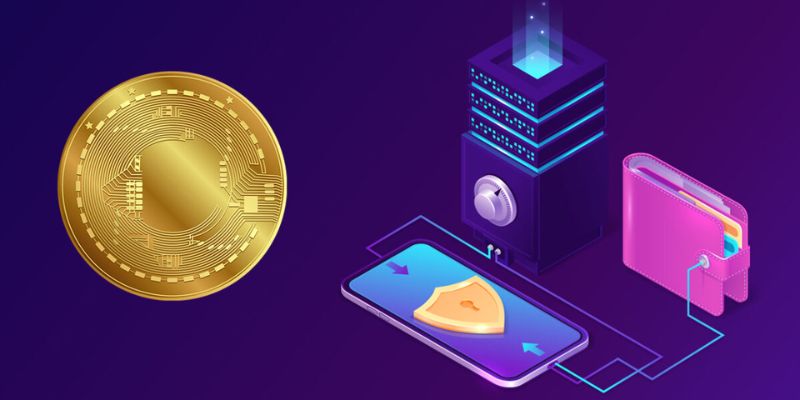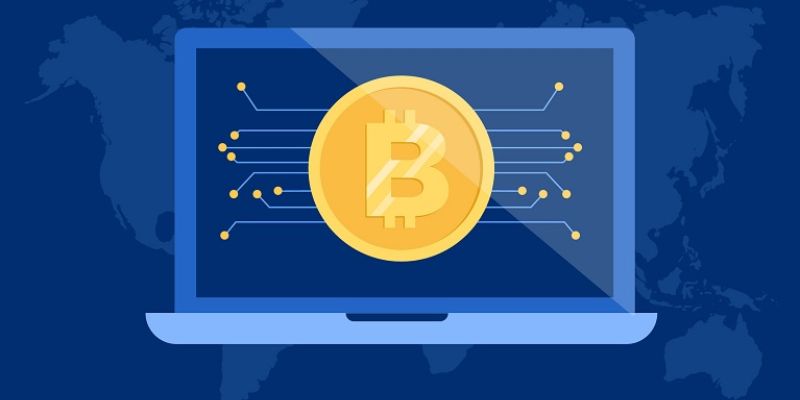How to prevent crypto wallet hacks starts with savvy steps you can make today. Imagine a fortress around your digital coins, keeping them safe from the slyest of cyber thieves. That’s what I want to help you build. From must-do updates to smart tech tricks, you’ll learn it all. Ready to be the hero in your own crypto saga? Let’s beef up that wallet defense!
Essential Security Practices for Cryptocurrency Owners
Implementing Two-Factor Authentication (2FA)
Two-factor authentication, or 2FA, is a must for wallet security. It adds a layer of protection. When you log in, a code comes to your phone or app. You need this code and your password. This stops hackers, even if they have your password. Always use 2FA for wallets to block hackers.
Let’s dive deeper into 2FA and why it’s so important. First, it works like a double lock. Imagine your digital cash is behind two doors. The first door has a standard lock – your password. Easy for a crook to pick, right? Now, add a second door with a unique lock that changes its key every time. This is 2FA. The only way to get through that second door is by having the key that’s sent to you. And only you get this key!
Besides, it’s more than just convenience. It’s about making your wallet tough to crack. Find an app like Google Authenticator or Authy. Use it for getting 2FA codes. Don’t use text messages if you can avoid it. Texts can be intercepted by nasty tricks like SIM swapping. Yep, that’s where thieves take control of your phone number.
So, remember these easy steps:
- Get a 2FA app.
- Set up 2FA on your crypto wallet.
- Keep your phone safe – it’s now part of your wallet’s lock.
Keeping hackers out of your stash of crypto is simple with these moves.
The Crucial Role of Regular Software Updates
Keep your wallet software updated. Always. It fixes weak spots that hackers love to exploit. Not updating is like leaving your door open for thieves. It’s that serious.
Why do updates matter so much? Well, software is like a fortress. But over time, little cracks appear. These cracks could let hackers sneak in. Updates are the patches that seal these cracks. No cracks mean no sneaky hackers. Get it?
And it’s not just about your wallet. You must update your phone and computer too. They are all linked. One weak link can break the whole chain. That means your whole crypto stash is at risk.
So what do you do? Check for updates on your devices. Do it often. Make it a routine. Think of it like checking your doors before bedtime. You’d never go to sleep with your front door wide open, right? Same goes for your digital doors – your software needs to be locked tight.
Stay sharp and do these two things:
- Turn on automatic updates.
- Regularly check for any missed updates.
Staying current with software keeps your crypto out of the wrong hands. Sounds easy enough, and it really is! It’s your money on the line, so take these steps to protect it.
Keep in mind, these tips are just the start. Secure cryptocurrency storage needs you to think ahead. Think smart, and stay safe.

The Art of Safeguarding Your Crypto Wallet
Exploring Cold Storage and Multi-signature Wallet Options
Keep your crypto safe—and sound. Simple but true. Let’s dive into how you can lock down your digital gold from sneaky hackers. Think of your crypto wallet like a treasure chest. You wouldn’t just leave it open, would you? Nope! You’d want the best locks out there. This is where cold storage comes in.
What’s cold storage, you ask? It’s keeping your crypto offline, away from online threats. Imagine it like a safe buried underground. It’s not just you who holds the key. This is multi-signature security. It means you need more than one key to open the vault—this keeps the bad guys out, even if they grab one key.
Endorsing Trusted Wallet Providers and Backup Solutions
Trust is a big deal in crypto. Not every wallet out there is your friend. You want to pick a trusted wallet provider. They’re the good guys who help to keep your money safe. They have strong walls in place and a good rep. It’s like having a bank that you know won’t let you down.
Your crypto is precious, right? What if something goes wrong? Here comes the backup. It’s your safety net. Think about superheroes; they always have a plan B. This is yours. You set up a recovery phrase security — a secret phrase that backs up your wallet. This way, you’re ready for anything. It’s like remembering the secret password to your treehouse.
Remember, your crypto deserves the best guard possible. You’ve got to be smart. Use cold storage to give hackers the cold shoulder. And choose a trusted wallet that stands like a knight in shining armor. Plus, always have a backup—a lifeline when you need it. Keep these things in mind, and your crypto will be as safe as in a dragon’s lair.

Smart Moves to Counteract Crypto Phishing and Wallet Exploits
Recognizing and Avoiding Phishing Scams
Let’s talk about dodging those sneaky phishing scams. First, know what they look like. Usually, you’ll get an email or message that seems legit but isn’t. It may ask for your keys or to click a link. Don’t take the bait! Real companies never ask for your keys. Always check the sender’s email. If it looks fishy, it probably is. Stick with the rule: no sharing your keys, ever. And those links promising quick profits? Ignore them. Only use well-known sites to stay safe.
Phishing often tricks folks into giving up their info. Hackers can make emails look like they’re from a trusted wallet provider. They may even rig websites to grab your keys. Always double-check URLs and emails for weird spellings or odd requests. Secure cryptocurrency storage starts with your sharp eye.
Best Practices for Private Key Management
Keeping your private keys safe is like guarding a treasure map. Only you should hold the map to your digital riches. Here’s the key (pun intended): use cold storage security measures. Think of it like locking your treasure in a vault. A hardware wallet lets you do just that. It stores your keys offline away from any online thugs.
Another smart move is a multi-signature wallet. It’s like needing two keys to open a safe. You need approval from more than one device to make a transaction. This extra step keeps hackers away from your loot. Just be sure to pick some pals you trust if they need to sign too.
Encryption is your best buddy. It scrambles your private info so only you and the receiver understand it. Always, I mean always, keep software updated. It’s like adding stronger locks on your doors. It might seem like a chore, but it’s a top way to block the baddies.
Now, about those backups. Make a plan and stick with it. Write down your recovery phrases and keep them hidden. Think of them like a secret code to your vault. Losing this would be a disaster, so maybe even put it in a real safe!
Lastly, stay on the lookout for news about wallet exploits. These are sneaky ways hackers can slip into your wallet. By staying informed, you can take steps to block these risks. Use trusted antivirus protection to spot these dangers early. And stick with trusted wallet providers. They’ve got a rep to protect and they work hard to keep your stuff safe.
Phishing, malware, and wallet exploits are scary, but now you know how to fight back. It’s all about using your head and making wise choices. Secure cryptocurrency storage isn’t just luck; it’s about being smart. Remember, your crypto is worth it. Stay safe out there!

Advanced Protection Techniques for Cryptocurrency Transactions
Embracing Encryption and Secure Connection Methods
You need a strong shield for your crypto. Think about encryption like a secret code. It scrambles your data, so only you and intended folks can understand it. Make sure you use encryption techniques for wallets. Your private key is your crypto’s heart. Safeguarding private keys is a must.
Don’t just rely on passwords. Go for two-factor authentication for wallets. It’s like a special knock to enter your digital home. And keep away from public Wi-Fi for transactions. It’s like yelling your secrets in a crowded park. Connect safely. Always use a secure internet connection for trading. Okay?
Understanding and Evading Common Crypto Swindles
Now let’s dodge those sneaky crypto con artists. Phishing is a big no-no. Detecting phishing scams can save your coins. Be like a guard dog with your email. Don’t click on weird links. Trust your gut feeling. If it seems off, it probably is.
Stay educated on crypto swindles. Did you hear about SIM swap fraud? It’s when someone tricks your phone company and takes over your SIM card. Use a dedicated email for crypto accounts. Reviewing wallet transaction history helps catch fishy moves. Quick checks can keep your crypto safe.
Remember to use common sense. It’s a great tool for avoiding unauthorized access. Keep it locked tight, just like your front door! Use cold storage security measures and multi-signature wallet protection to block hackers.
Always back up your wallet. Think of it like a spare key. If one is lost, you got another. Backup strategies for wallets are real lifesavers. Write down your recovery phrase, but keep it quieter than a library. Wallet seed phrase protection is as serious as it gets.
For super defense, get serious about private key management best practices. Pick trusted wallet providers. They’re like choosing the best goalie for your team. Don’t give your key to just anyone. Know your transaction counterparty. It’s about trusting who you play ball with.
And hey, you’re not alone. We’re in this crypto journey together. Keep your guard up, update often, and stay smart!
In this post, we’ve delved into key steps to keep your crypto safe. With two-factor authentication and up-to-date software, you’re setting a strong defense. Don’t forget cold storage for added safety and opt for wallets that the crypto community trusts. Phishing scams are out there, so stay sharp and manage your private keys with care.
Always encrypt your data and use a secure network for your transactions. Keep an eye out for those common cons that trick even savvy crypto fans. My final thought? Protecting your crypto takes constant vigilance, but it’s worth it. So take control, use these tips, and trade with peace of mind. Stay safe out there!
Q&A :
How can I safeguard my cryptocurrency wallet from unauthorized access?
To protect your cryptocurrency wallet from hacks, it’s essential to implement multiple layers of security. Start by using strong, unique passwords and change them regularly. Enable two-factor authentication (2FA) for an added layer of protection. Consider a hardware wallet for storing large amounts of cryptocurrencies, as they are less vulnerable to online hacking attempts. Regularly update your wallet software to benefit from the latest security patches. Lastly, be wary of phishing attempts and never share your private keys or wallet seed with anyone.
What are the best practices for maintaining the security of a crypto wallet?
Maintaining the security of your crypto wallet includes implementing robust and consistent security practices. Always backup your wallet, including the private keys or seed phrase, and store the backup in a secure location offline. Educate yourself on common scams and phishing techniques to recognize and avoid them. Use reliable and well-known wallet providers with a strong track record of security. Restrict the use of your wallet on public Wi-Fi and consider using a VPN for additional security. Finally, periodically review and update your wallet’s security settings.
Can updating my cryptocurrency wallet software prevent hacking attempts?
Keeping your cryptocurrency wallet software up-to-date is critical in preventing hacking attempts. Developers regularly release updates that patch vulnerabilities, address bugs, and enhance security features. By updating your wallet software, you ensure that you’re not exposed to known exploits that hackers might use to gain unauthorized access to your funds. Enable automatic updates if available, and follow your wallet provider’s official channels for update notifications.
How does two-factor authentication contribute to the security of my crypto wallet?
Two-factor authentication (2FA) adds an essential layer of security to your crypto wallet by requiring a second form of verification in addition to your password. This usually involves a code generated by an app or sent to a mobile device that must be entered to access your wallet. Even if a hacker guesses or steals your password, without access to the second factor, they can’t gain entry into your wallet. It’s crucial to enable 2FA on all accounts related to your cryptocurrency transactions, including exchange accounts.
Is a hardware wallet less prone to hacking, and how does it work?
A hardware wallet is considered one of the most secure types of cryptocurrency storage because it keeps your private keys offline, making them virtually immune to online hacking attempts. It works by signing transactions in a secure environment within the device itself, which means the keys never leave the hardware wallet. This method of “cold storage” is less convenient for frequent trading but is highly recommended for the long-term storage of substantial cryptocurrency amounts. Make sure to purchase hardware wallets from reputable vendors and to follow the manufacturer’s instructions for setting up and using the device securely.


